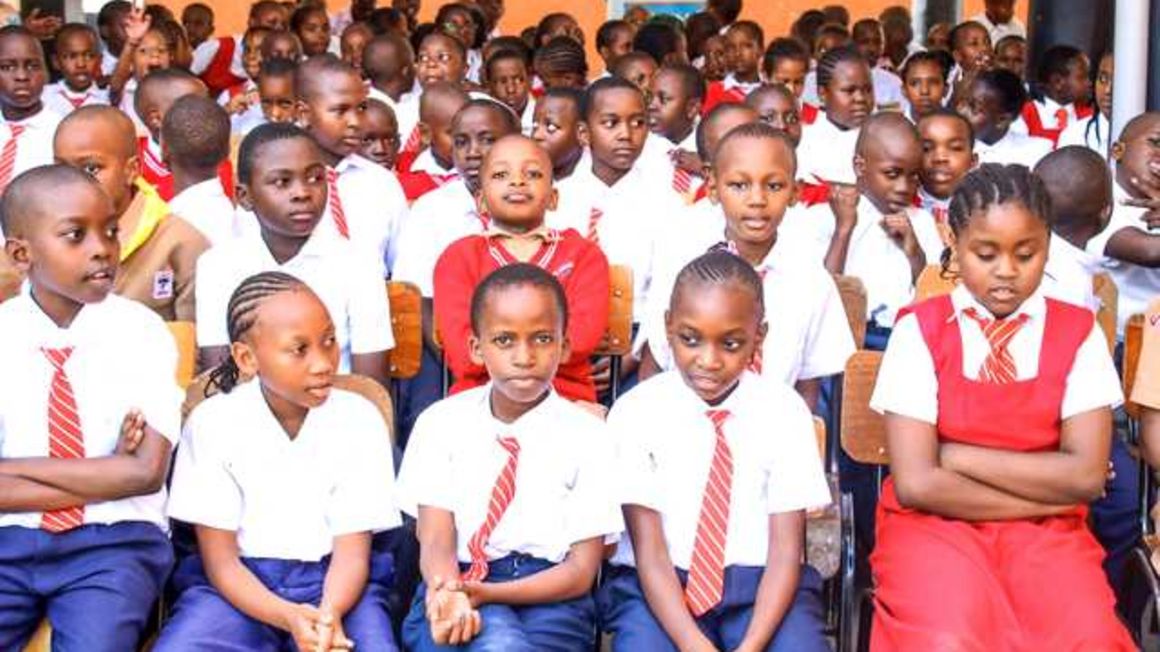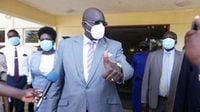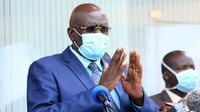Covid-19 rules to change school life

Schools may reopen in January 2021 as envisaged by the government, but life in those institutions may never be the same again if the Education ministry has its way.
From the way pupils and students learn, eat, play, down to even the gate they will use to get into the school, the ministry has released guidelines that aim to minimise interactions and prevent the spread of Covid-19.
For starters, sporting activities, music and drama festivals have been suspended to ensure that learners keep social distance.
Mid-term breaks may also be suspended. Learners will eat in shifts and will not be allowed to share utensils or sit together while eating.
“Staggered eating shifts by classes will be considered where the population is high to avoid crowding in the dining hall. Where possible, lunch and afternoon snacks will take place within each class,” read the Ministry of Education guidelines.
In boarding schools, parents’, career and motivation days have also been suspended to avoid visitors’ interaction with learners. So learners will only be able to see their parents and guardians when the schools close.
REDUCE INFECTION
The schools, on the other hand, will have to employ a broad risk reduction strategy proven effective in hospitals to reduce infection and keep the learners safe.
In hospitals, masking, handwashing and infection control measures have proven effective, but will these be applied in the school environment? Who is going to be responsible for ensuring that the children wash their hands and put on their masks correctly? How about the provision of face masks?
At the gate before entering the school compound, the learners will be required to wash their hands, which means the flow of water should be constant in all the schools, all the time.
They should wear masks all the time and undergo daily temperature screening.
The new Education ministry guidelines require school heads to ensure adequate clean running water and sanitation facilities in the institutions and procure water tanks where applicable.
Sitting in crowded classrooms will be a thing of the past as schools will observe social distance measures.
The guidelines suspend assemblies and schools will only be allowed to hold class mini-assemblies to pray, pass health messages and make announcements.
For learners below nine years, the rules require class teachers to meet them at the institution’s gate at the start of the day and escort them to the exit at pick-up times to limit parents or visitors from entering the institutions.
Pre-primary learners will be split into smaller groups of not more than four during playtime and breaks.
They will not be allowed to bring toys from home while teachers will be required to accompany them to the toilets.
WORKING TABLES
Learners will disinfect and clean their desks, working tables and lockers daily.
“Teachers are to ensure proper ventilation in classrooms to ensure the circulation of clean air.
In the dormitories, schools should ensure social distancing and reduce congestion and surfaces and equipment should be cleaned and disinfected daily,” said the guidelines.
Toilets and washrooms should be adequate at a ratio of one door to 25 girls and one door to 30 boys with a urinal.
Schools will also be required to have a designated room within the institution premises for use as a sickbay or for temporary isolation in case of presumed Covid-19 cases and a qualified nurse employed to manage learners’ health issues.
Education Cabinet Secretary George Magoha said ministry officials would be going round schools to assess their preparedness and that they will be providing the learners with two washable facemasks before the reopening of schools.
Prof Magoha said the government would release funds to schools in two weeks to start preparing.
Kenya Secondary School Heads Association chairman Kahi Indimuli and his Kenya Primary School Heads Association counterpart Nicholas Gathemia said schools are yet to receive the masks and money for preparations.
Mr Indimuli said the ministry should ensure the face masks are enough for both learners and teachers.
When he spoke on Monday, President Uhuru Kenyatta said the government had set aside funds for the improvement of infrastructure in schools.
Kenya could learn from Norway and Denmark, where schools reopened a month after they were closed.
The two countries initially opened schools for younger children, after strengthening sanitising procedures, limited class size, organised children in small groups at recess and ensured space between desks. Neither country has seen a significant increase in cases.
According to a report by University of Washington researchers, there have been school-based outbreaks in countries with higher community infection levels and countries that eased safety guidelines too soon.
In Israel, the virus infected more than 200 students and staff after schools reopened in early May and lifted limits on class size a few weeks later.












Post a Comment